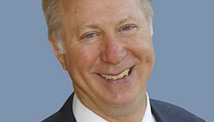Obama's stunning turnaround

- David Gergen: Voters must be asking, "Who really won in November?"
- Despite drubbing Democrats took, Obama bounced back and scored victories, he says
- Gergen says Obama adopted a different, more effective approach to governing
- Gergen: Challenges lie ahead, particularly over cutting government spending
Editor's note: David Gergen is a senior political analyst for CNN and has been an adviser to four U.S. presidents. He is a professor of public service and director of the Center for Public Leadership at the Harvard Kennedy School.
(CNN) -- Voters who flocked to the Republican banner seven weeks ago are probably scratching their heads, wondering, "Who really won in November?" After handing the president and Congressional Democrats the worst drubbing in more than half a century, they can only watch in disbelief as President Barack Obama has reeled off a series of unexpected victories.
A new stimulus bill, repeal of "don't ask, don't tell," and now START -- who would have believed that this shirt-tail session of Congress would have been so triumphant? They call it "lame duck" but it was anything but lame.
What happened? One answer, I would submit, is that the president and his team found a better approach to governing: Instead of relying on the Democratic caucus in each chamber to deliver, they built up coalitions of their own that swayed public opinion in their direction and gave them leverage in Congress.
On the extension of tax breaks -- along with several other tax breaks the president wanted -- the White House cut a deal with Sen. Mitch McConnell and other Republicans. Liberal Democrats naturally cried foul, but the White House-GOP coalition sent a persuasive signal to the public that this was a reasonable compromise. Polls showed the public coming down in favor, and as night follows day, Congress voted the compromise into law. (Contrast how quickly the public turned against the health care reform when it was a Democrats-only bill.)
On "don't ask, don't tell," and on START, the White House had a different, but equally formidable, coalition that helped to turn the tide in the president's direction. The fact that Bob Gates -- one of the most respected defense chiefs in history -- and the chair of the Joint Chiefs, along with the poll of service members, came out in favor of repealing DADT made a huge difference in swaying both public opinion and Congress.
--David Gergen
 David Gergen: Obama is a 'clutch player'
David Gergen: Obama is a 'clutch player'
 Obama looks back on 'productive' year
Obama looks back on 'productive' year
 President Obama greets the press corps
President Obama greets the press corps
START appeared all but dead until the president assembled a group of Republican heavyweights -- from George H.W. Bush and Kissinger to Baker and Shultz -- whose vocal support for the treaty reversed the momentum.
In each case, there were also Senate stalwarts -- Joe Lieberman and Susan Collins on DADT, John Kerry on START -- who delivered, too.
From my biased perspective, I also thought the president was more effective because he seemingly played these fights more from the background than the foreground. We heard about him each day making phone calls, bringing in votes, but we didn't see him so constantly at the podium. It worked!
The net result is that President Obama has regained his mojo much more quickly than anyone, including his closest advisers, might have imagined. Even Bill Clinton did not bounce back from his mid-term defeat so quickly.
None of this means that the president has erased the meaning of the elections. Voters clearly wanted to put a brake on excess spending and government that seemed to be growing out of control. If the elections were held again today, I would imagine that the results would be much the same.
Less noticed in the hubbub about Obama's victories is how easily McConnell and company derailed the omnibus spending bill -- one that gagged in the throats of the public with its more than 6,700 earmarks. More to the point, the Republicans have now set up a pair of showdowns in the first few weeks of the new year -- one over lifting the debt ceiling that could come as early as February, the other when the new budget resolution expires in March. Either one could bring a shut-down of Washington -- and unlike the Clinton-Gingrich donnybrook of 1995, Republicans could well have the public on their side this time.
So, tough, tough fights lie ahead. But the surprise is that Obama now enters 2011 on a more even playing field -- and he and his team have shown a fresh approach to governing that could continue to serve them well in the new year.
The opinions expressed in this commentary are solely those of David Gergen.
